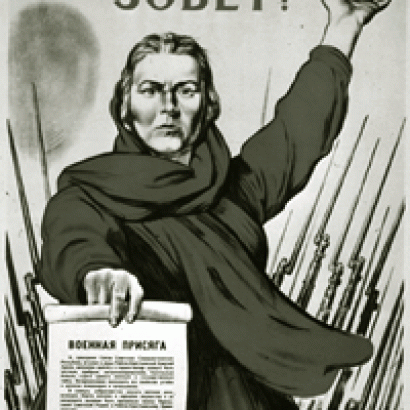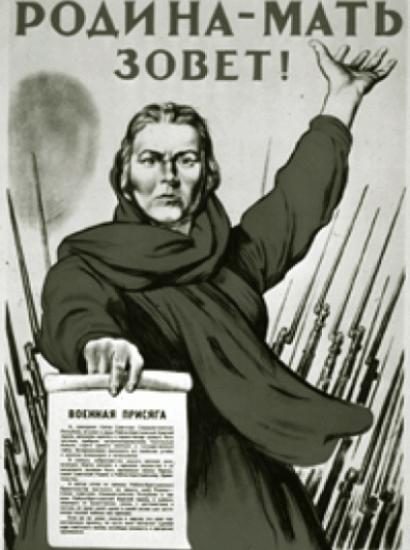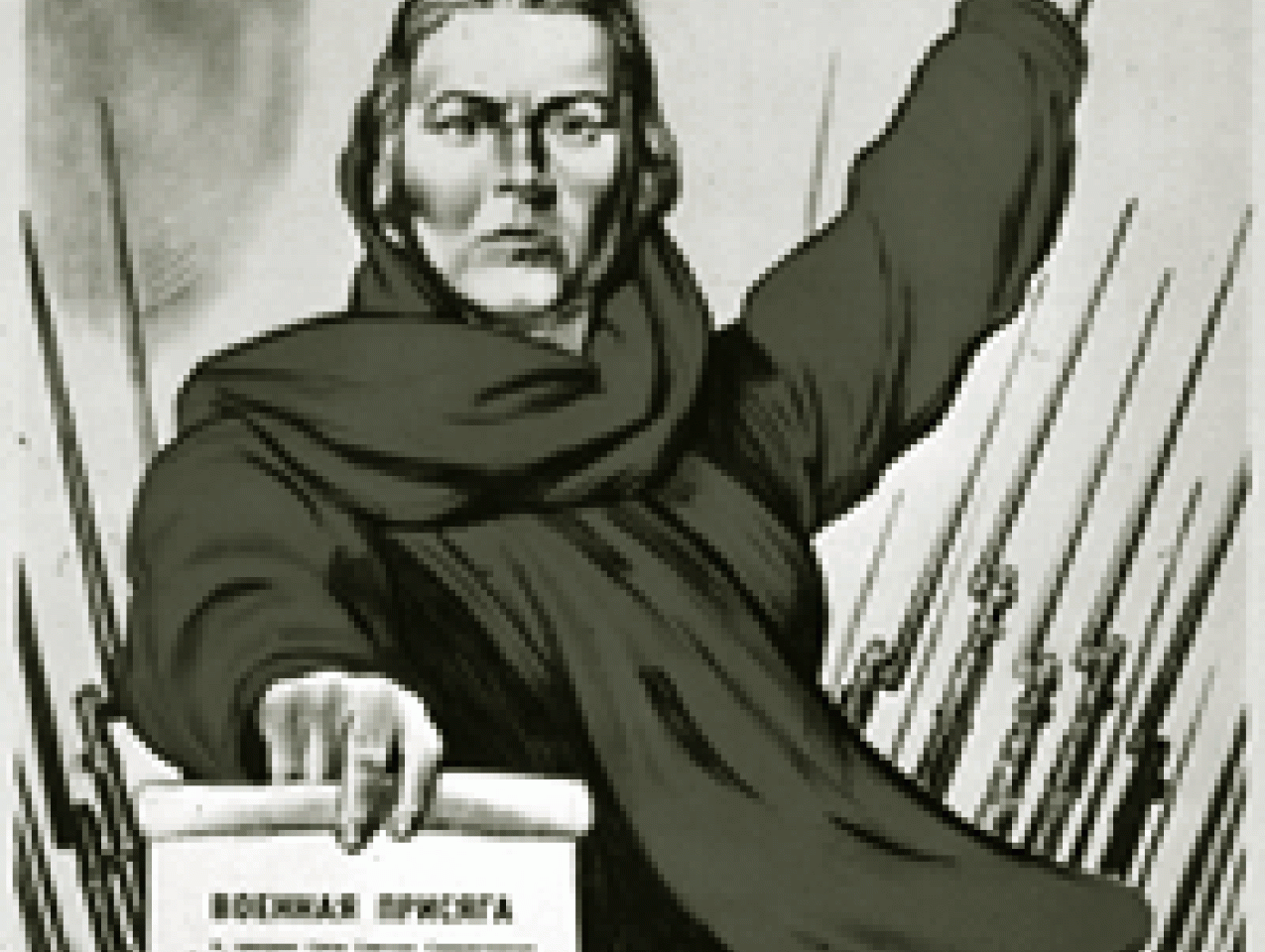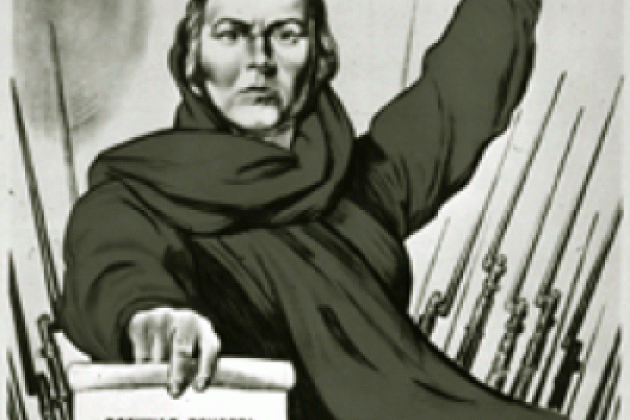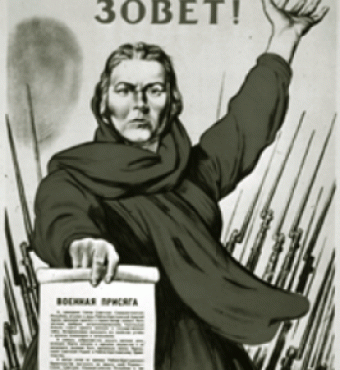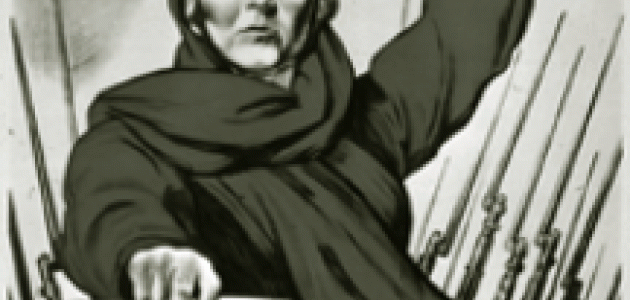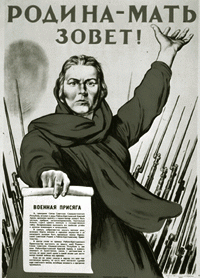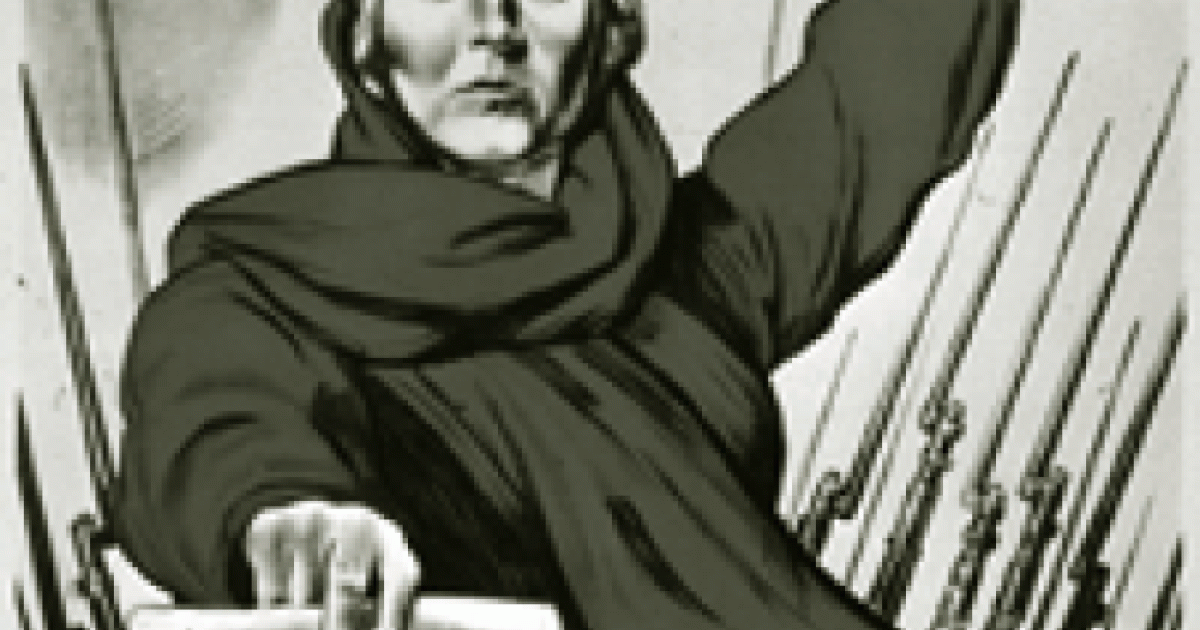Russia looms large on our horizon, an uncomfortable companion on the world scene. It stands
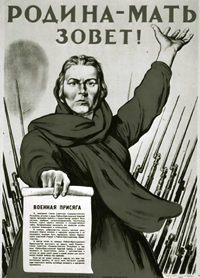
weak, in a sense which is troublesome, and strong, in a sense which is even more troublesome, a chaotic and struggling mass with a myriad of nuclear warheads. A hundred years ago a Russian poet could write
You are strong, you are weak,
You are rich, you are poor,
Mother Russia.
These paradoxes still apply.
As I write, it is only just over five years since Russia was, as it were, cast up bruised and broken onto the shores of the modern world. But understanding Russia in the West has long been vitiated by a number of misconceptions. These came from left and right, but all of them shared one major fault: the idea that Russia was a country or culture fully interpretable in terms familiar to Western ways of thought.
When the Soviet system collapsed, there were many in the West who thought that a transition to the obviously preferable, and obviously successful, arrangements of the West--democracy and the market economy--would spring to life in short order. Freedom was a normal human aim, while Economic Man would, it was imagined, swiftly emerge from the bondage in which he had been suffering. But Russian experience, Russian goals, Russian habits of mind had been so different from those of the West that these perspectives proved fallacious, in fact, dangerously misleading.
The Role of History
Above all, nations do not escape their history. A hundred years ago, Anton Chekhov wrote of Russia's "heavy, chilling history, savagery, bureaucracy, poverty, and ignorance . . . Russian life weighs upon a Russian like a thousand-ton rock." And the century which has meanwhile passed was a yet more atrocious experience.
An earlier writer than Chekhov, Ivan Turgenev, noted that all the liberties of the West were rooted in the Middle Ages and that Russia "had no Middle Ages." This is indeed a crux. The Magna Carta was signed in 1215; the Mongol invasion of Russia began within a decade.
Vassaldom under the Mongols thoroughly de-Europeanized the Russian political and civil tradition. But even when, after generations, Russia reemerged, the country lived in an almost permanent state of mobilization on the frontier against the continual menace from the steppe. For hundreds of years the threat was permanent. Moscow was sacked by the Crimean Tatars as late as 1571. As a result, Russia had always to keep what was, by the standards of the time, a huge army on the frontier until winter made the routes impassable to raiders. Unlike the brief campaigns of feudal levies in Western Europe, this military service was permanent and universal. Some sixty-five thousand men (it is estimated) were regularly called up, a very large army by comparison with those raised in periods of crisis in France and Germany, which then had considerably larger populations than Russia. The French army at Cr´ecy, the largest hitherto seen in feudal Europe, was twelve thousand men, and the Germans could not raise as many as twenty thousand to face the great Turkish invasion.
The Russian effort was thus a killing one. As the historian Pavel Miliukov writes in Ocherki Po Istorii Russkoi Kultury, "Compelling national need resulted in the creation of an omnipotent state on the most meager material foundation; this very meagerness constrained it to exert all the energies of its population--and in order to have full control over these energies, it had to be omnipotent."
As Trotsky put it in The History of the Russian Revolution, not only Russian "feudalism" but all the old Russian history was marked by this "meagerness": the absence of real cities, the fact that in its attempt to compete with "richer Europe" the Russian state "swallowed up a far greater relative part of the people's wealth than in the West, and thereby not only condemned the people to a twofold poverty, but also weakened the foundations of the possessing classes," whose growth was "forced and regimented." (The periods of swift industrial growth, both under tsarism and in Soviet times, he notes as being, in fact, the result of that very backwardness.) And, of course, effective militarization entailed expansion.
Rigorous centralization was enforced over huge territories. Even when it took a year for an order to reach its recipient, even on very petty matters the decisions were made in Moscow and later, Saint Petersburg. In contrast, naturally enough, the great distances made it far more difficult for the scattered subjects to bring any influence to bear on the capital or to coordinate complaints into any general movement.
First, over the seventeenth and eighteenth centuries, the autocracy in Russia became more and more complete--far more so than the regimes in France and elsewhere of which the term is often used. Second, right into the nineteenth century serfdom became more general and harsher. Third,
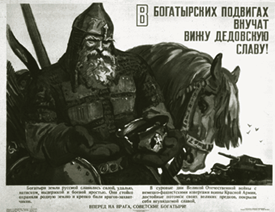
as Ronald Hingley succinctly puts it in his The Russian Mind, Russia "never possessed a politically influential upper, middle, or any other class; never any powerful corporate body able to exert irresistible pressure on central authority." Fourth, from Peter the Great's time on, Russia sought to modernize, or Europeanize, not as regards political or civil matters but simply in technology--especially military technology. (In 1820 Russia had the most advanced artillery industry in Europe.)
There is nothing ethnically Russian in any of this. It is and was the product of the political culture. For example, it was the common observation of foreign observers that whereas the old merchant cities of Novgorod and Pskov were regarded by the Hanseatic merchants as particularly creditworthy, this trait disappeared on their annexation to Muscovy. The Hanse thus forbade all credit to Russians. Cheating became endemic. An Englishman of the time gives as a reason that, unable to rely on the future, the Russians thought only of immediate advantage, a point confirmed by a German observer. Under such a style of autocracy, there was no true security since the state could at any moment take everything away. That is to say, a complete change in economic attitudes was produced by the attitudes of the state. As Sir George Macartney, the British envoy extraordinary to Russia in Catherine the Great's time, remarked, "The form of government certainly is and will always be the principal cause of the want of virtue and genius in this country, as making the motive of one and the reward of both depend upon accident and caprice."
Russians developed a culture of reliance on personal relations--informal networks of acquaintances who to this day help out in anything, from providing the food for a party to getting a dentist who can be "paid" by a service done for him by one or other of the network connections. This in some measure accounts for the current avoidance of socioeconomic collapse. At any rate, all these characteristics marked Russia right up until the 1990s.
The Communist Disaster
In general, the communist era was morally, intellectually, and physically bleak, far beyond earlier Russian experience. Over seventy years all the other social forces were destroyed and an alien totalitarian order implanted, recruiting to itself a dullard bureaucracy and creating wasteful and parasitic economic forms.
That order destroyed at least twenty million human lives and created an atmosphere of terror that swept through the rest of the population. It was accompanied by corruption and incompetence on an enormous scale. All the advances made toward constitutionalism and liberty over the last half century of tsarism were destroyed. Russia became the first truly totalitarian state, whose main concern was to make conformism to a vicious and erroneous doctrine the norm.
The communist period was in fact a threefold disaster. It was demographically a tremendous blow to the country; not only were the actual population losses huge, but they fell most heavily on the most advanced elements. The intellectual catastrophe was comparable. And the moral distortions were equally crushing.
Even in the socioeconomic sphere the problems arising were not merely a matter of economics proper. The first influential--though at the time secret--analysis came in 1983 from the official sociologist, Tatyana Zaslavskaya, who later summed up:
The primary reasons for the need for perestroika were not the sluggish economy and the rate of technological development but an underlying mass alienation of working people from significant social goals and values. . . . For fifty years it was said that this was public property and belonged to everyone, but no way was ever found to make workers feel they were the co-owners and masters of the factories, farms, and enterprises.
This alienation of the working class was accompanied by a general alienation and, as far as possible, an opting out of the official society. As Joseph Brodsky put it, "The worst effect of the regime was that people stopped allowing themselves to think or feel, and that to build some sort of personal life by deceiving or avoiding the authorities came to be thought the highest achievable good."
Broadly speaking, by the mid-1980s the younger generation's attitude to the official dogma, and to the system itself, was one of contempt. Moreover, by this time those of the intermediate generation who were not obvious and notorious dullards and who constituted the junior levels of the state with which the young were in direct contact had themselves lost faith and become semicynical. When one met Soviet representatives abroad, one could see that they were embarrassed and ashamed of the lies they had to tell--not just lies but stupid, degrading lies.
The disjunction between the system's claims and the reality--and in particular the disastrous prospects ahead--had become clear to some Soviet economists and sociologists twenty and more years ago. In time this penetrated the official research institutes of the party and state. Then in the 1980s that disjunction reached a section of the party leadership. When Shevardnadze said to Gorbachev in 1984 on the beach at Pitsumi on the Black Sea, "This can't go on," it was a signal that the end was near. In the long run, falsification failed in the face of long-suppressed but still persistent reality.
How Perestroika Made Things Worse
The feeling of Russian citizens that perestroika, in its initial phase, made things worse is correct. The Gorbachev leadership made two main mistakes. First, the antialcohol campaign produced huge fiscal losses, with few (though some) social gains. Second, the old Soviet habit of solving everything by massive investment again emerged and tied up a vast amount of much-needed capital. That, of course, did not work, and now the market economy is in a general way recognized as the only option.
However, the creation of a market economy was to a great extent a misleading concept. Market
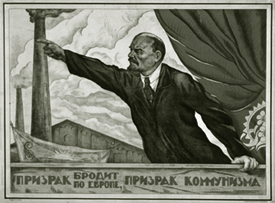
economies have emerged rather than been decreed. Socialist economies were, of course, consciously set up by the state. The problem in Eastern Europe was to create conditions under which a market economy could come into being. Then, conditions being set, an entrepreneurial or, at least, market-oriented class would emerge. Some Western economists believed that this would happen automatically. That may be so in the long run, but in practice few were prepared for the new economic regime.
There had, indeed, been a fair amount of illegal, but often marginally tolerated, free enterprise and a certain proportion of economic reality in the USSR. Too much and the system would erode, too little and it would explode. By the early 1980s, this was already out of hand. As Professor Alain Besançon, the French expert on Russia, noted in the early 1980s, for the first time, money was becoming as important as position in securing the perquisites of the trough--which could result in what he prefigured as "a sort of savage capitalism."
This economic network was linked into the state machine at its various levels, each with its price. In one of Gogol's novels a bureaucrat is accused of accepting bribes above his station. Similarly, under communism, as a recent correspondent put it, "everyone knew what he was eligible to steal." This important element is still in place, concerned not with productive capitalism but with the apparatchik in his new capacity as businessman and looting the state's funds.
As a Moscow sociologist wrote toward the end of the Soviet era, "Decades of destitution has shaped in our people the psychology of poverty and want," with so much competition for every particle of subsistence that the already notorious Russian penchant for preferring general failure to anybody's success--found indeed in many peasant-rooted societies--was much exacerbated. It should be added that this more or less paranoid attitude toward profit also affects the Russian view of Western investment.
To sum up: We see a country which, out of a backward past, had begun to evolve toward a civic order more than a half century following the emancipation of the serfs in 1861; which had those developments destroyed in 1917; which then suffered for three-quarters of a century from totalitarian-utopian despotism; which inherited an economy and ecology almost in ruins in a social order heavy with the detritus of that past and a political mentality still charged with the never-abreacted negative attitudes of both the totalitarian and the pretotalitarian history. The legacy of socialism was, in Mikhail Gorbachev's phrase, "collective responsibility and individual irresponsibility."
The Trouble with a Velvet Revolution
The collapse of the Soviet Union can be seen as greatly overdue. Not only had the system failed economically, ecologically, and finally even in its military purpose, but, just as important, it had lost credibility, incurred contempt from all the thinking--and feeling--elements of the population.
Yet the trouble with a velvet revolution is that it does not decisively liquidate the previous unsatisfactory political forces. It is a sad reflection on Stalinism's degree of success in indoctrination that a narrow-minded regressive stratum bearing its imprint still exists in Russia, not only in the political sphere but even in the cultural world.
A 1995 poll shows that only 5.1 percent of Russians believe that talent and hard work can bring wealth; 44.2 percent said that speculation was a more likely route; and 20.4 percent identified money laundering as a way to get rich. Even those who have become wealthy tend to agree. Some 18.3 percent of entrepreneurs said that criminal money plays a big role in their lives, and 40 percent of the self-identified new rich said that they had engaged in illegal activities on the way up.
The Russian criminal stratum, dating back four hundred years, was the only social element the Communists failed to penetrate and control (if we except a few special cases--underground religious groups, gypsies, and the clans of the North Caucasus). This stratum reemerged more publicly after the collapse of the regime and was soon operating in its old symbiosis with a section of the apparat.
Then again, the only group experienced in industrial management were the old economic apparatchiks--some ready for change, others less so, others not at all--and none, in any case, more than indirectly subject to market considerations. Insecurity as against the bureaucracy, the state, the overlapping criminal element, and the absence of reliable law is endemic.
To write of post-Soviet Russia is to examine "rubble," as Solzhenitsyn put it. The collapse of the old structure has left a chaos which has not yet settled into anything like normality. The immediate political outlook is confused, with no clear outcome, a turbulence of conflicting and often self-destructive interests, and a government (and a governmental system) with shaky public legitimization.
In a speech in 1990 to the Union of Writers in Leningrad, I said that I hoped to see a series of free elections with Sakharovite and Solzhenitsynite parties competing and ceding power peacefully when defeated. One questioner was puzzled: "But if one of them is right, it would be wrong for it to lose power." Habits of mind of major cultures are not changed easily or suddenly. Chekhov said three generations ago that Russia needed to "squeeze out the slave drop by drop."
The Prospects
There are reasonable prospects of the huge entity that is Russia, after a difficult and wearisome transition, becoming a normal country. There are also prospects of more negative and dangerous futures. This is a crux in world history. We in the West can best contribute to a favorable evolution by giving what aid and encouragement we can to the favorable developments by neither provoking nor appeasing the darker forces at work and, above all, by opening our minds to a deeper understanding of Russia's whole historical, psychological, political, and economic identity, rooted in experiences so different from our own.








